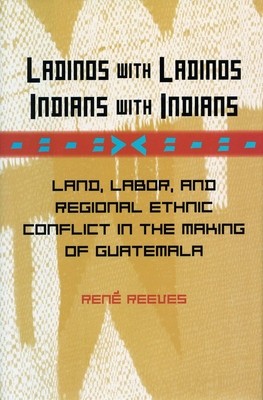
- We will send in 10–14 business days.
- Author: René Reeves
- Publisher: Stanford University Press
- ISBN-10: 0804752133
- ISBN-13: 9780804752138
- Format: 16.1 x 22.9 x 2 cm, hardcover
- Language: English
- SAVE -10% with code: EXTRA
Reviews
Description
In the late 1830s an uprising of mestizos and Maya destroyed Guatemala's Liberal government for imposing reforms aimed at expanding the state, assimilating indigenous peoples, and encouraging commercial agriculture. Liberal partisans were unable to retake the state until 1871, but after they did they successfully implemented their earlier reform agenda. In contrast to the late 1830s, they met only sporadic resistance. Reeves confronts this paradox of Guatemala's nineteenth century by focusing on the rural folk of the western highlands. He links the area of study to the national level in an explicitly comparative enterprise, unlike most investigations of Mesoamerican communities. He finds that changes in land, labor, and ethnic politics from the 1840s to the 1870s left popular sectors unwilling or unable to mount a repeat of the earlier anti-Liberal mobilization. Because of these changes, the Liberals of the 1870s and beyond consolidated their hold on power more successfully than their counterparts of the 1830s. Ultimately, Reeves shows that community politics and regional ethnic tensions were the crucible of nation-state formation in nineteenth-century Guatemala.
EXTRA 10 % discount with code: EXTRA
The promotion ends in 16d.19:01:20
The discount code is valid when purchasing from 10 €. Discounts do not stack.
- Author: René Reeves
- Publisher: Stanford University Press
- ISBN-10: 0804752133
- ISBN-13: 9780804752138
- Format: 16.1 x 22.9 x 2 cm, hardcover
- Language: English English
In the late 1830s an uprising of mestizos and Maya destroyed Guatemala's Liberal government for imposing reforms aimed at expanding the state, assimilating indigenous peoples, and encouraging commercial agriculture. Liberal partisans were unable to retake the state until 1871, but after they did they successfully implemented their earlier reform agenda. In contrast to the late 1830s, they met only sporadic resistance. Reeves confronts this paradox of Guatemala's nineteenth century by focusing on the rural folk of the western highlands. He links the area of study to the national level in an explicitly comparative enterprise, unlike most investigations of Mesoamerican communities. He finds that changes in land, labor, and ethnic politics from the 1840s to the 1870s left popular sectors unwilling or unable to mount a repeat of the earlier anti-Liberal mobilization. Because of these changes, the Liberals of the 1870s and beyond consolidated their hold on power more successfully than their counterparts of the 1830s. Ultimately, Reeves shows that community politics and regional ethnic tensions were the crucible of nation-state formation in nineteenth-century Guatemala.


Reviews